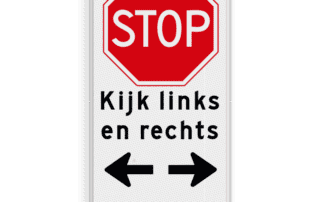Central website (and/or central telephone number), an infringement of an exclusive catchment area?
In various franchise agreements (in the past), the central acquisition of customers via the internet was not properly considered, in combination with the geographic exclusive territories of the franchisees.
On 10 February 2015, the Amsterdam Court of Appeal (ECLI:NL:GHAMS:2015:412) rendered an interesting ruling on the question whether the franchisor’s central website infringed on the franchisee’s exclusive catchment area. The central telephone number of the franchisor was also discussed in that context.
The franchisee argued that the franchisor’s central referral system infringed on the (undisputed portion of the) exclusive service area.
The franchisor disputed this claiming that the exclusive territory, as defined in the franchise agreement, in no way means that potential customers must be referred to the franchise location in the territory in which they are located. This exclusivity only provides that no other franchisees or branches of the franchisor may be established within an assigned district and that entrepreneurs may not work for third parties, according to the franchisor.
According to the franchisor, the referral system also functions properly and (potential) customers from the exclusive service area are referred to the franchisee in question. Via the central telephone number, customers are referred to branches with the shortest travel time for them.
The Court of Appeal ruled that a franchisor who opens a central website is in principle obliged to realize equal opportunities for his franchisees. The franchisee has, in the opinion of the Court of Appeal, not sufficiently proven that the franchisor acted differently than might be expected of it.
With regard to the referral system via the central telephone number, the franchisor had apparently outsourced this to De Telefoongids, whereby the franchisor had made sufficient efforts to bring about synchronicity with the exclusive catchment areas. The referral mechanism based on the shortest travel time was apparently the best possible solution. The Court of Appeal ruled that the franchisor had made sufficient efforts in this respect.
Of course, it is highly dependent on the case-by-case in which way a central referral system functions and should function. In particular, it is also important whether the franchisor itself competes with the franchisee in its exclusive service area. Unlawful competition can easily arise in many webshops of franchisors, if and insofar as this is not (properly) regulated in the franchise agreement.
Mr AW Dolphijn – Franchise lawyer
Ludwig & Van Dam Franchise attorneys, franchise legal advice. Do you want to respond? Mail to dolphijn@ludwigvandam.nl

Other messages
Not a franchise agreement, but a general cooperation agreement
The Franchise Act offers franchisees various protective provisions. Earlier, the ...
Albert Heijn has to divest 5 Jan Linders stores
Jan Linders becomes an Albert Heijn franchisee and will therefore ...
Agreed early termination of the franchise agreement
A franchise agreement is usually concluded for a specific period ...
No obligation to use a rental property as a supermarket
The Arnhem-Leeuwarden Court of Appeal has made a decision on ...
Rent indexation unrealistically high
Does an agreed rent indexation always apply? The District Court ...
Clarity pays off
Clarity pays off Many agreements sometimes use vague definitions ...







